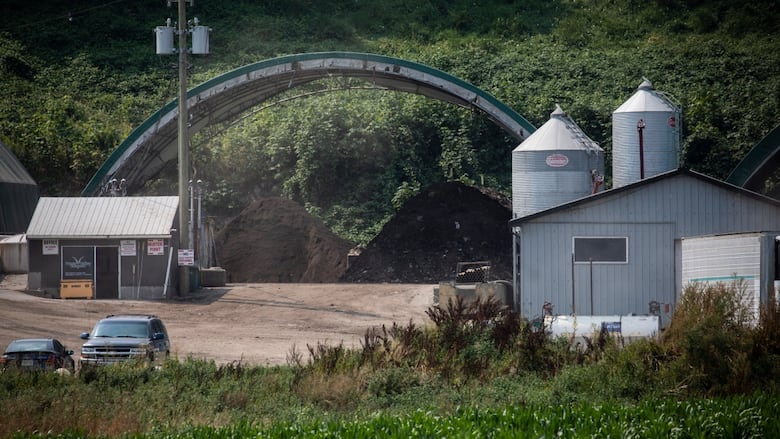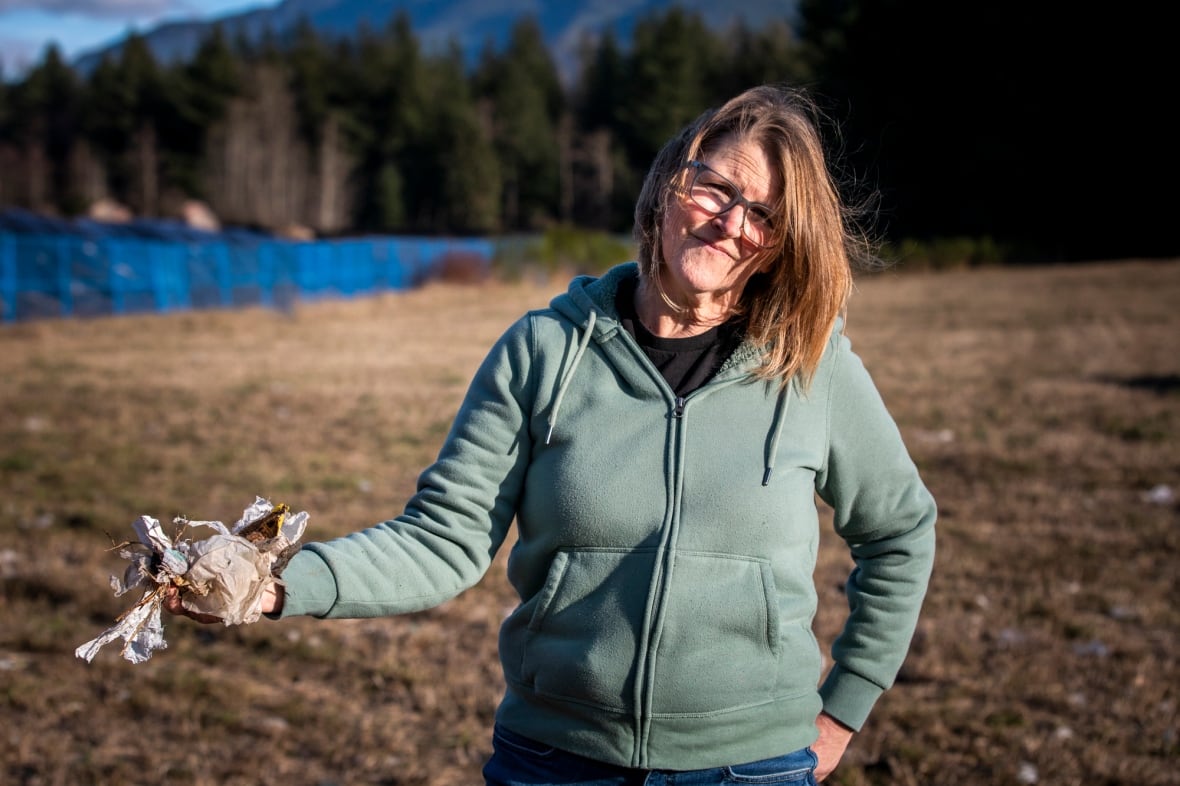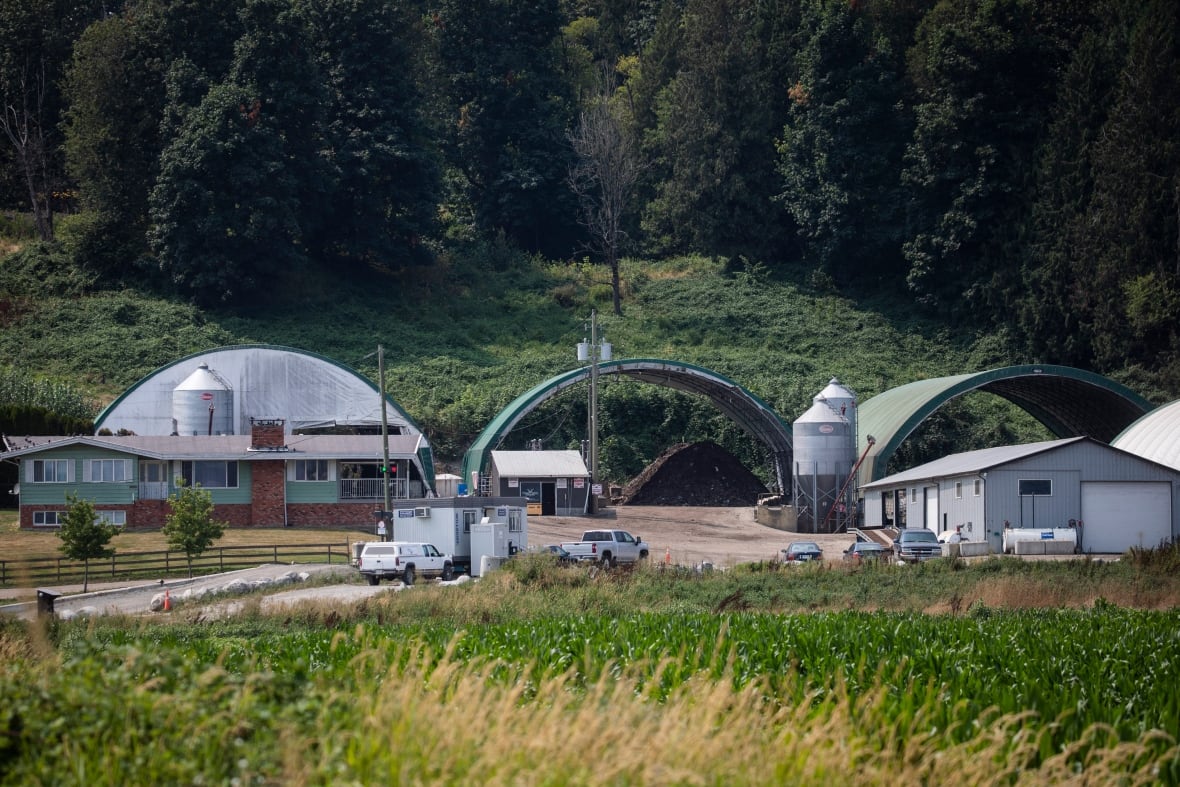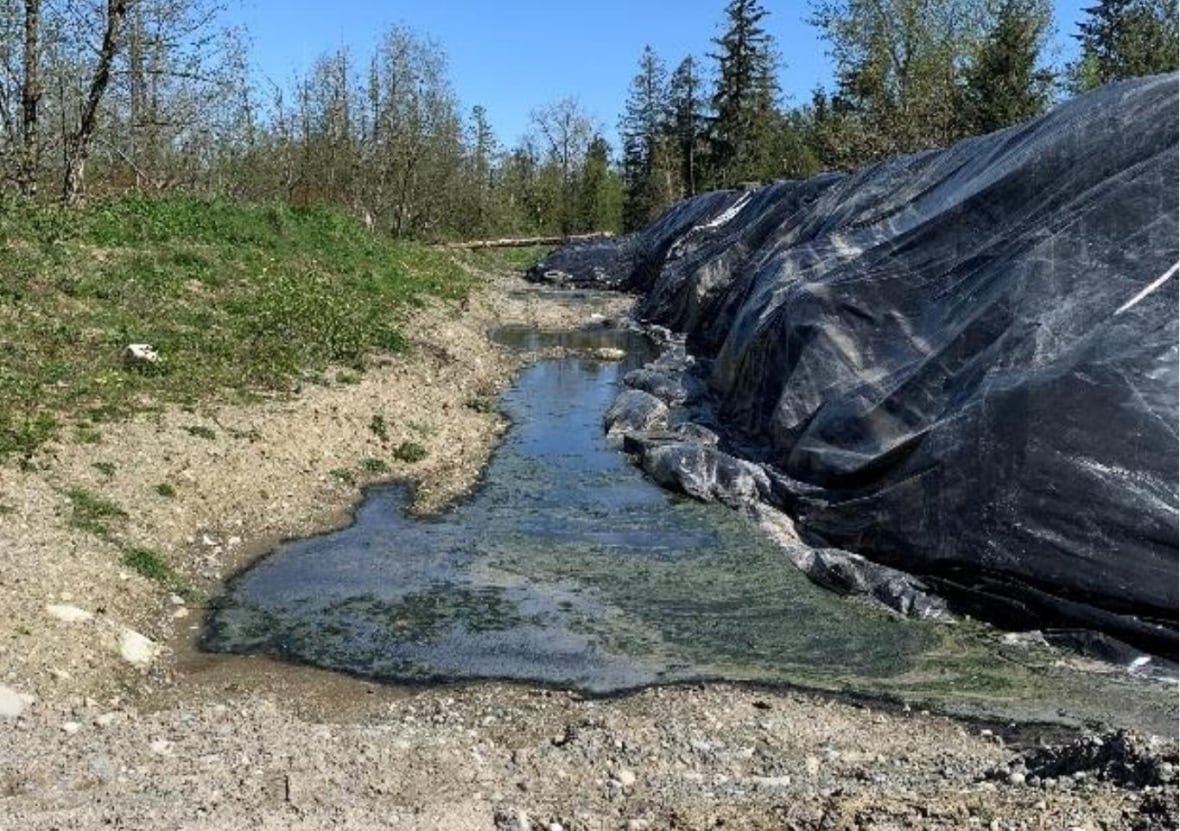Fraser Valley organics company accused of relocating piles of illegal waste to another unauthorized site
Business owner tied to a series of environmental violation through affiliate companies in B.C.

A Fraser Valley organics company is in hot water for allegedly relocating piles of illegally dumped business waste from a farm near Cultus Lake to a property near Hope, where the organic garbage is once again violating B.C.'s environmental laws.
According to B.C.'s environmental compliance and enforcement branch, Fraser Valley Renewables delivered eight truckloads of municipal organic waste from a farm in Columbia Valley, a small community east of Cultus Lake, to 59261 St Elmo Rd., near Hope, constituting "unauthorized discharge" into the environment.
The report says the company has a "lengthy history of non-compliance" and that fines have been recommended. Inspectors previously found the material included plastic, metal and some construction and demolition waste.
The company was previously fined $8,000 for dumping the waste in the Columbia Valley back in 2022, and subsequently ordered to remove it. At the time, residents feared hazardous material would leach into critical aquifers — concerns that were also shared by B.C.'s environment ministry.

"I was a little surprised there wasn't more oversight in terms of where the material would end up," said Darcy Henderson, a Columbia Valley resident who was part of a neighbourhood effort that fought against the illegal dumping, bringing it to the ministry's attention.
"I'm much less satisfied to think the problem has not been solved, it's simply been moved," she said. "It's not a win if it's just a shuffle."
Taryn Dixon, a Fraser Valley Regional District board member who represents residents from the Columbia Valley, says it's upsetting to find out material dumped in her community was simply relocated elsewhere in the district.
"The concern of our board is that it's like whack-a-mole," said Dixon. "A company might get some fines or might have to move product, and it just goes to the same location and the same issues arise — people are concerned about their safety, about the water, about the environment."

CBC News has since learned the owner of the company, Matthew Malkin, is a managing partner and principal of an affiliate company called Fraser Valley Agri Waste, which has its own history of environmental violations and fines. The Ministry of Environment fined the company $9,000 after inspectors found its organics facility was triple its allowed capacity.
The ministry has also recommended fines after inspectors reported finding liquid pollution seeping from waste piles at an Abbotsford property it says is transited by two fish-bearing streams.
However, in a statement, the City of Abbotsford said it's aware of the issues surrounding FVAW and that it's working with the business to ensure compliance at both its sites within the municipality.
"Ongoing monitoring by the City has confirmed the [Bates Road] site is currently operating within the permitted use parameters. A file remains open to ensure continued compliance," a city spokesperson said in an email.
CBC News has reached out to Matthew Malkin and his affiliated companies for comment.
Overcapacity
FVR labels itself as an organic waste conversion company. It sources its feedstock from municipalities in Metro Vancouver, the Fraser Valley and the Okanagan, including organics, food scraps, paper products, yard waste and waxed cardboard.
B.C. Environment Ministry enforcement documents list Malkin as an owner of FVR and managing partner at FVAW. Recent court documents filed by the Bank of Nova Scotia list Malkin as the principal of FVR and FVAW.
The filing also lists Malkin as the owner of 5205 Bates Rd. in Abbotsford, the same site as FVAW's composting facility.
In late June, the enforcement branch levied a fine against FVAW for being near triple its capacity at the site, which was said to have room for 8,000 tonnes of feedstock. The ministry found it accepted 25,637 tonnes of organic matter between April 1, 2023, and May 15, 2024.

Ministry staff said the waste increased the risk of leachate, with runoff being observed entering an adjacent agricultural field. It said the site was also within one kilometre of McLennan Creek, a fish-bearing watercourse, heightening the possibility for environmental harm.
In its report, the ministry said FVAW denied being overcapacity, but did not provide sufficient evidence to support the claim.
Ongoing dumping
In 2022, ministry inspectors found that FVR dumped extensive piles of business waste onto 810 Iverson Road, a farm in Columbia Valley, and applied it to the landscape, according to their report. An Agricultural Land Commission (ALC) inspector found it included contaminants like plastic, metal and some construction and demolition waste.

It was ordered to be removed a year later, with FVR initially missing its May 2024 deadline. The material was removed in the following months.
A June 5, 2025, inspection found eight truckloads of waste were relocated to a property on St Elmo Rd. near Hope, where they were discharged without any authorization from environmental regulators. The piles weren't contained, the report states.
"Despite being reminded at least four times in 2022 and 2024 that discharging waste into the environment required authorization under the [Environmental Management Act], FVR distributed the Waste to the Site," wrote environmental protection officer Taryn Angus in the report, which recommended further administrative penalties.
Meanwhile, in 2024, the ministry inspected another FVAW facility at 28265 Huntingdon Rd. in Abbotsford. Inspectors said they found piles of wood, plastic, and rubber, causing continuous effluent discharge or liquid waste to flow into the environment.
The report described the fluid as "black, brown and/or frothy effluent pooling at the base of the piles, and flowing to puddles, ponds or wetlands and subsequently discharging to Salish Creek and Pepin Brook."

A Dec. 3, 2024, provincial pollution prevention order says the waterways are fish-bearing streams that are home to both the endangered Nooksack Dace and the at-risk Salish Sucker. It says the piles also sit over a vulnerable aquifer.
In the months that followed the order, inspectors continued to find incidents of discharge at the site. On July 8, the case was referred for a financial penalty, and FVAW was ordered to take "corrective measures" within 30 days.

'The cost of doing business'
Fraser Valley Regional District board member Dixon says the district has been working daily with the ministry, advocating for legislation to curb illegal dumping provincewide.
"The ministry does have to have a source-to-site, long-term plan to remedy the situation," said Dixon. "Identifying actual places where this material can go to be dumped would be another avenue the province could explore."
Dixon and Henderson both believe that the fines levied against Malkin's company, thus far — $9,000 to FVAW and $8,000 to FVR — don't go far enough to prevent future incidents.
"It comes across as the cost of doing business," she said. "That's something we're working with the ministry on: substantial penalties, so it stops."
CBC News asked the Ministry of Environment if it believes enforcement action thus far has been sufficient. It responded saying that it's aware of FVR's practices and that it continues to conduct inspections.
The City of Surrey says it ceased dealings with FVR as soon as it found out its waste was being dumped illegally.
Ian Paton, a Conservative MLA for Delta South and agriculture critic, says B.C.'s compliance and enforcement abilities are understaffed and underfunded.
"There's still six enforcement officers for the entire province of B.C. to try to keep an eye out for illegal dumping on agricultural land," he said.
Paton says communities can also strengthen municipal bylaws. Delta is among municipalities that have used bylaws to require permits for soil deposit and removal on agricultural land.
Dixon says her district is looking into a similar soil-deposit bylaw in hopes of protecting the land base — but says it can only go so far.
"It allows us to have a little bit of control of what's happening, but it also points out our shortcomings and where our powers end," said Dixon.


